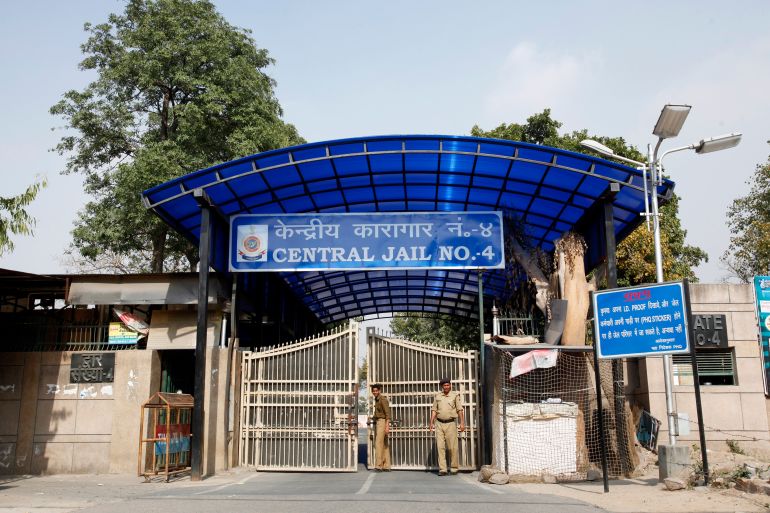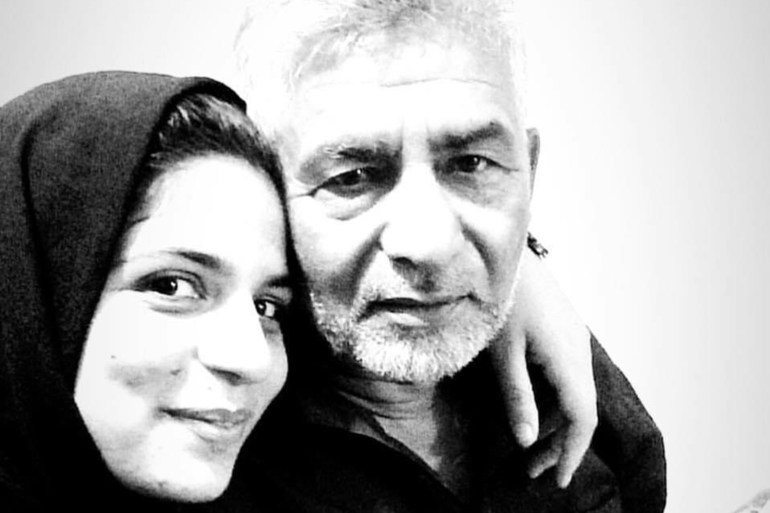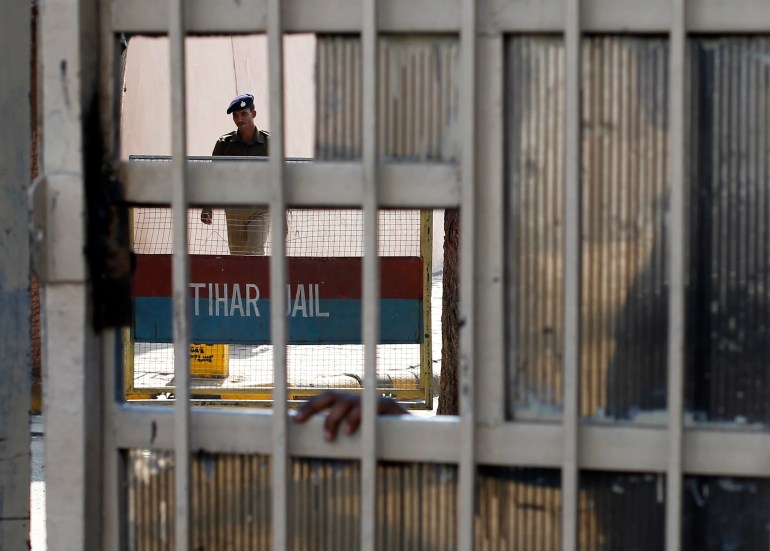Kashmir pro-freedom leader Altaf Ahmad Shah dies in India custody
The family of Shah, who had renal cancer, alleges he was denied proper medical treatment in jail despite repeated appeals.

Altaf Ahmad Shah, a prominent pro-freedom leader from Indian-administered Kashmir, has died in custody fighting renal cancer, his family said.
Shah, 66, was being held in the high-security Tihar prison in the Indian capital New Delhi for the past five years. He died early on Tuesday while undergoing treatment at a state-run medical college in the city.
Keep reading
list of 4 itemsUproar in Kashmir as India allows voting rights to non-locals
Yasin Malik’s journey: From gun-toting Kashmir rebel to Gandhism
Has India’s Kashmir policy under Modi failed?
His family had, in the past, made several appeals for release on bail or access to better medical care for Shah, who also suffered from hypertension and diabetes for years, putting him in a high-risk category during India’s coronavirus pandemic lockdown.
“At 10:30pm [Monday], he passed away in the hospital. They did not let us see him when he was talking. When he stopped talking, they allowed us,” one of Shah’s family members told Al Jazeera.
The family said Shah was moved to New Delhi’s Ram Manohar Lohia Hospital on September 24 after a prolonged illness in jail. A week later, he was diagnosed with advanced renal cancer.
His daughter, journalist Ruwa Shah, took to Twitter to highlight her father’s deteriorating health and to demand better treatment. She also wrote to Indian Prime Minister Narendra Modi and Home Minister Amit Shah, appealing for bail on health grounds.
“My incarcerated father has been diagnosed of acute renal cancer which has metastasis and has spread to his other body parts, including his bones. It is my whole family’s request to please allow us to see him and consider his bail application on health grounds,” Ruwa Shah said in a tweet on September 30.
On October 5, Shah was moved to the All India Institute of Medical Sciences hospital in the capital where he died.

Shah and six other prominent Kashmiri pro-freedom leaders were arrested in 2017 by India’s National Investigation Agency (NIA) for alleged money laundering.
Two years later, New Delhi unilaterally scrapped the special status of the disputed region and put more Kashmiri politicians and activists behind bars.
The Himalayan territory of Kashmir is claimed by both India and Pakistan, who govern parts of it. The two South Asian nuclear powers have fought two of their three full-scale wars over the territory.
A rebellion against New Delhi’s rule in Indian-administered Kashmir began in the late 1980s and has claimed tens of thousands of lives so far.
The rebels want to either merge Indian-administered Kashmir with Pakistan or create an independent state. Shah belonged to a group of non-violent separatists demanding a right to self-determination by the residents of the region.

Shah is the third Kashmiri prisoner to die in custody in the last four years. Their families say the deaths in custody reflect a lack of proper medical treatment for Kashmiri prisoners held miles away from their homes, which makes it very difficult for their families to visit them, in different Indian jails.
In December 2019, Ghulam Muhammad Bhat, 65, a resident of north Kashmir’s Kupwara district, died in jail in Uttar Pradesh state’s Prayagraj city after five months in custody. He had already been suffering from a number of ailments when he was arrested.
Last year, another prominent pro-freedom leader, Muhammad Ashraf Sehrai, 77, died of COVID after a year in custody at a hospital in Indian-administered Kashmir’s Jammu city.
Shah was the son-in-law of iconic pro-independence leader, Syed Ahmed Shah Geelani, who died last year during his decade-long house detention.
In a condolence message on Twitter, Pakistan’s Prime Minister Shehbaz Sharif said he is “deeply grieved” at Shah’s death in Indian captivity.
“Modi regime denied him treatment despite knowing he was a cancer patient. Custodial killings are the norm in Modi’s India,” he wrote.
Deeply grieved at passing of prominent Kashmiri leader Altaf Shah, son-in-law of Syed Ali Geelani, while in Indian captivity. Modi regime denied him treatment despite knowing he was cancer patient. Custodial killings are norm in Modi's India. My condolences to the bereaved family
— Shehbaz Sharif (@CMShehbaz) October 11, 2022
Since losing its special status and being declared a federally-run territory in 2019, Indian-administered Kashmir, the country’s only Muslim-majority region has witnessed an intense crackdown against its political leaders.
The families and lawyers of those detained have warned of ill-treatment and abuse of more than 1,000 Kashmiris kept in jails outside the region.
“Healthcare is not a concern for jail authorities. They [prisoners] are being provided the required food and are often placed in solitary confinement,” G N Shaheen, spokesman of the Jammu and Kashmir High Court Bar Association, told Al Jazeera.
“According to the law, they (authorities) have to provide basic necessities of life, including healthcare with dignity in jail. Not all prisoners have yet been convicted. Even during a trial, the detainees are facing health problems that could take lives. It reflects the situation in jails.”